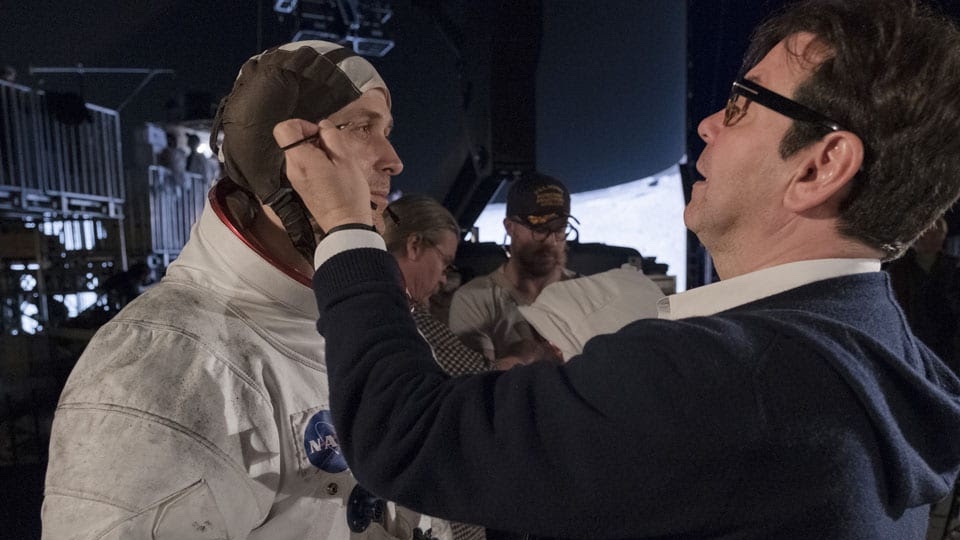
Labor Day may be a couple of months away, but since little thought is actually given to the labor movement on that holiday anymore, I decided to use the “independence” granted to me with this column to check in with IATSE’s director of communications, Jonas Loeb, in advance of the major American holiday that precedes it — Independence Day.
The hope was to take the temperature of the town heading into the 4th of July break and see how labor, particularly of the showbiz stripe, was faring these days. And while things remain ostensibly calm on the national contract front, for now, I asked him where the union’s most pressing current issues lay, and to provide a glimpse of the organizing landscape that lays ahead.
Loeb wasn’t just helpful — he also provided a guest! About whom, more in a sec.
First, Loeb mentioned that headed into negotiations for commercials with the AICP, the union was “starting to prepare earlier than ever — though we’re dealing with the same employers.”
Which itself becomes an interesting commentary on the state of showbiz, ownership, and professional storytelling.
He also mentioned they were getting a lot of international organizing requests, including recently for “organizers to talk to folks over in Japan. [But] we only oversee the U.S. and Canada and had to refer them.”
Perhaps most importantly, we talked about women’s healthcare, now under assault in about half the country, though Loeb noted that IATSE has “members in all of the states; the union is representing women where they’re working.”
And while contracts can — and do — include demands for health insurance and coverage, what happens when some of those previously-covered procedures, medicines, etc., are no longer available due to political decisions?
He mentioned that “a lot of the entertainment companies have said that they would cover travel costs” for women who had to leave places like Texas or Georgia for basic OB/GYN services in other, bluer states.
But, he asks, taking Amazon as an example, “were they only thinking of people in their offices?” Thinking of the productions that run on Prime, those are made by “LLCs that dissolve after the productions finish.”
So then who, at Netflix, Amazon, Apple, etc. (or anyone working for a production LLC at any studio) is actually going to cover these expenses when a female worker has to leave a soundstage in Atlanta to travel across state lines for health care?
“These are all things being looked at,” he says, observing that the union has “operated some pretty heavy duty mutual aid programs in the past,” when natural disasters have hit. Now that political disaster is hitting, one storm after another, “we’re prepared to spin those up again.”
Another thing being spun right now — and if that image brings to mind vinyl on a turntable, so much the better — is trying to organize music supervisors into their own local.
For a production’s music score, supervisors have become as important as composers themselves, as the soaring sales of Kate Bush’s revived “Running Up That Hill” (and Metallica’s “Master of Puppets”) from the current season of Stranger Things attests.
Sitting in the Zoom room with Jonas was music supervisor Lilah Obregon-Wilson, one of the “core unionizers for Music Supervisors,” and self-described “overall production ninja,” who divides her time between Austin and New York, and, currently, between working and organizing.
Over the years, she’s watched “budgets go down, and music go down,” while expectations remained high (analogous to the situation VFX supervisors are in, including as Obregon-Wilson notes, surprise among colleagues and co-workers that “that we aren’t union already”).
Covid, she said, “escalated the movement to go forward,” and despite getting 75 percent of the cards given to music supes saying they did want IA representation, the AMPTP “said ‘no,’ because we’re general contractors.”
Issues include “a living wage [and] getting paid on time,” thus better able to wean members from “a codependency on all these jobs. You can’t say ‘no’ to anything — which is crazy. Now we’re at a place where we can’t even take food breaks. The timeframe is insane.” Another apt comparison to work on the VFX side.
And when you factor in “contracts where the music supervisors have not been covered in the insurance,” it becomes understandable when colleagues say “I can’t really afford” to keep pursuing that line of work.
And yet, love of the music — and often the ability to spotlight either forgotten tracks, entire schools of music, or unjustly neglected musicians — propels them on. Their excitement appears to be shared early in production meetings, when “we start being part of that dialogue — we are usually on the front end,” though often “with no contract. And then you go, and you get your budget, and your deal memo,” realize how crushing that deal memo really is, and yet also consider that “oh, I’ve already sunk so many hours into this,” and yet continue anyway to try at least recoup the spent time.

That is the “ball and chain” she seeks to break, the title of a Big Mama Thornton song, also used in more recent times by the SoCal punk group Social Distortion. Which brings to mind some of her music placement credits.
“Favorite placements” of hers include “one of my first for a film in 2011, Love, by the band Tippy Toes which consisted of Reggie Watts, Guy Licata, Andrew Reposo, Morgan Wiley, and Abe Seiferth. All bigger names now [Watts, for example, would go on to be the bandleader for James Corden‘s Late, Late Show] but in 2008 Tippy Toes played regularly at my venue, The Lucky Cat. So this had a special place in my heart. Loose Joints’ “Is it All Over My Face” for Coach’s 50 Years Proud project was another good one. Everything in the doc Love and Fury, which features Native artists in the states. Best find for the team would be two tracks that were placed in the VR film Battlescar that is inspiring a reissue so I can’t mention them now.
Which gets us back to punk, since the tagline for that film was “Punk was Invented by Girls.”
And even if women in America, from abolitionists to suffragettes to garment workers and beyond weren’t the sole inventors of activism, the time would certainly seem nigh for a reinvention, along with some punk-like snarls in the face of increasingly unmoored institutions, whether corporate, governmental or otherwise.
Loeb, for his part, notes that designating music supervisors as contractors also serves to keep them out of the NLRB’s definition of “full-time employees,” who are “allowed” union affiliation in the first place.
“If you’re misclassified,” he adds “their eligibility to even have a union is called into question.” He then cites the ongoing standoff with hair and makeup personnel at the Atlanta Opera, who voted to unionize, but had their ballots impounded after the owner appealed on similar grounds — and now, as the months drag on, are still expected to work.
As for where it stands with music supervisors, Loeb says “right now, we’re asking for voluntary recognition,” since the critical mass is there among workers for union affiliation. But he acknowledges that “employers have the right to say ‘no'” – even if it is for the wrong reason.
But he also says “we believe we have sufficient information these people are misclassified as contract workers. That’s according to state law. [And] we’re prepared to present that information to state and federal bodies.”
Or as he states, “It shouldn’t be a question if 75 percent of the people want to get together.”
Well, it shouldn’t. But there’s around 75 percent support for a lot of things — widespread reproductive choice, to take but one — that isn’t happening right now.
Or as Obregon-Wilson puts it while extrapolating from the dearth of minority representation among music supervisors today, “all those dreams you’re supposed to have; the world got smaller, but the hustle got bigger.”
And perhaps, the reinvention continues.
 Mark London Williams is a BTL alum who currently covers Hollywood, its contents and discontents, in his recurring “Across the Pond” dispatch for British Cinematographer magazine, contributes to other showbiz and production-minded sites, and musters out the occasional zombie, pandemic-themed, or demon-tinged book and script, causing an increased blurring in terms of what still feels like “fiction.”
Mark London Williams is a BTL alum who currently covers Hollywood, its contents and discontents, in his recurring “Across the Pond” dispatch for British Cinematographer magazine, contributes to other showbiz and production-minded sites, and musters out the occasional zombie, pandemic-themed, or demon-tinged book and script, causing an increased blurring in terms of what still feels like “fiction.”
Mark London Williams’ Union Roundup column will appear every Tuesday. You can reach him to give him tips and feedback at [email protected]. He can also be found on Twitter @TricksterInk.





